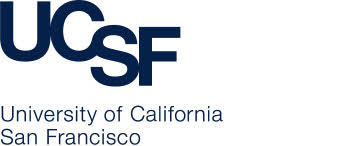ORGANIZERS

In 1934, a dozen pioneering science reporters established the National Association of Science Writers (NASW) at a meeting in New York City. They wanted a forum in which to join forces to improve their craft and encourage conditions that promote good science writing. Today, NASW has more than 2,000 members. The association charter is to “foster the dissemination of accurate information regarding science through all media normally devoted to informing the public.” Over the years, NASW officers have included both freelancers and employees of most of the major newspapers, wire services, magazines, and broadcast outlets in the country. Above all, NASW fights for the free flow of science news. Since 1972, the NASW Science in Society Awards have recognized investigative or interpretive reporting about the sciences and their impact on society.

The Council for the Advancement of Science Writing (CASW) is a panel of distinguished journalists, science communications specialists and scientists committed to improving the quality and quantity of science news reaching the public. Founded in 1959, CASW develops and funds programs to help reporters and writers produce accurate and informative stories about developments in science, technology, medicine and the environment. Its flagship program is the New Horizons in Science briefing, now in its 55th year. CASW honors superior writing by bestowing the Victor Cohn Prize for Excellence in Medical Science Reporting and the Evert Clark/Seth Payne Award for a Young Science Journalist. The Council’s contributions to science writing and public understanding of science were recognized in 2003 when it received the prestigious Public Service Award of the National Science Board (NSB). CASW is a non-profit charitable organization chartered under Section 501(c)(3) of the U.S. Internal Revenue Code.

The World Federation of Science Journalists (WFSJ) is a not-for-profit, nongovernmental organisation, representing 51 science journalists’ associations of science and technology journalists from Africa, the Americas, the Asia-Pacific, Europe and the Middle East. The Federation encourages strong, critical coverage of issues in science and technology, environment, health and medicine, agriculture and related fields.
The WFSJ seeks to further science journalism as a bridge between science, scientists and the public. It promotes the role of science journalists as key players in civil society and democracy. The Federation’s goals are to improve the quality of science reporting, promote standards and support science and technology journalists worldwide.
HOSTS

The University of California, San Francisco (UCSF) is a leading university dedicated to promoting health worldwide through advanced biomedical research, graduate-level education in the life sciences and health professions, and excellence in patient care. It has top-ranked graduate schools of dentistry, medicine, nursing and pharmacy, a graduate division with nationally renowned programs in basic, biomedical, translational and population sciences, as well as a preeminent biomedical research enterprise and UCSF Health, which includes two top-ranked hospitals, UCSF Medical Center and UCSF Benioff Children’s Hospitals in San Francisco and Oakland, as well as other partner and affiliated hospitals and healthcare providers throughout the Bay Area.
![]()
The University of California, Berkeley is the highest ranked public university in the world for undergraduate education (in US News & World Report and Academic Ranking of World Universities). Established in 1868, UC Berkeley is the oldest institution in the University of California system and offers approximately 350 undergraduate and graduate degree programs in a wide range of disciplines. Berkeley faculty, alumni, and researchers have been awarded 72 Nobel Prizes.
